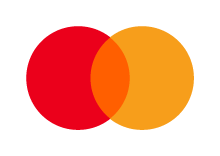Health beyond absence of disease
We discuss more and more about disease and its manifestations, but very few of us are really interested in our own health. How do we recognize someone who has achieved balance on all levels of their being? How can we tell that someone is physically, emotionally and mentally balanced?
The World Health Organization defines health as “a state of complete physical, mental and social well-being and not merely the absence of disease or infirmity”. George Vithoulkas, today’s most valued homeopathic practitioner (and winner of Right Livelihood Award, the equivalent of the Nobel prize in medicine), says:
“Health is freedom from pain in the physical body, having attained a state of well-being; freedom from passion on the emotional level, having as a result a dynamic state of serenity and calm; and freedom from selfishness in the mental sphere, having as a result total unification with Truth and God”.
Conventional medicine has complete faith in medication, disregarding a host of deep, subtle aspects of the human being. In other words, when it comes to diagnosing and treating a disease, allopathic doctors consider only the physical level, that is to say the blatant imbalances affecting our body. And not even these imbalances are dealt with correctly.
A perfect state of health cannot be achieved without a holistic, comprehensive approach on the human being.
As I was saying in the opening paragraph, the balance and harmony defining well-being involve the three levels of a human being: the physical, the emotional, and the mental dimensions. This implicitly leads us to accept that within each of us there is a vital force, otherwise stated a divine intelligence, whose absolute priority is the survival and proper functioning of our entire body. Therefore, not fighting disease does not mean to ignore it, but to act in perfect agreement with our vital force; what we have to do when this vital force weakens is to awaken and reinforce it. This is a significant act of courage, but those who will brace up to attempt it will enjoy the true benefits of healthiness.
What are the signs of genuine well-being?
An individual who feels no pain and has not been diagnosed with any particular disease is not necessarily a healthy person. If you eat anything at all without experiencing physical discomfort or complications does not necessarily mean that you are perfectly healthy. On the contrary! An awakened vital force will work one way or another toward removing the toxins from our body. For instance, our vital force knows that after a hearty meal consisting in steaks, sweets and beverages, it must throw out the entire harmful combination in order to protect our health. Most of the times we feel an urge to vomit and we inhibit it – either by using medication or simply ignoring it –, which is a costly mistake our body will eventually have to pay for. Of course, feasting on foods that are difficult to digest and unhappy combinations of foods are a harsh punishment we inflict on ourselves. Yet, getting rid of them is a way to protect our body from severe complications.
In his book “Organon of Medicine”, Samuel Hahnemann says:
“In the healthy condition of man, the spiritual vital force (autocracy), the dynamis that animates the material body (organism), rules with unbounded sway, and retains all the parts of the organism in admirable, harmonious, vital operation, as regards both sensations and functions, so that our indwelling, reason-gifted mind can freely employ this living, healthy instrument for the higher purposes of our existence”.
Homeopathy, one of the deepest and most efficient forms of alternative medicine, defines health (in a similar way to George Vithoulkas) as freedom from physical pain, consuming passions and all kinds of psychic stress. Even the dissolution of the ego is an indication that balance was achieved, since a modest, humble and generous attitude will help us fit in with our natural and social environment.
According to the definition proposed by Professor Vithoulkas, another criterion for health assessment is creativity, that is “all those acts and functions which promote for the individual himself and for others their main goal in life: continuous and unconditional happiness”: therefore, all types of creation – poetry, painting, music, architecture and any other profession involving commitment, creativity, and initiative. When an individual ceases to create, this is a clear sign of disease – a disease that has already set in on the physical, mental or emotional level.
We are dealing, therefore, with a different perspective on health. Of course, we cannot cover all facets of health in one article, but we can provide a starting point, offer a few essential aspects of a holistic, all-encompassing perspective on the human being. How we go about achieving this state of harmony and how we make it last is up to each one of us. Nowadays, there are various forms of alternative medicine focused on the prevention of disease, and modern technology provides increasingly efficient and safe devices intended not only to help us prevent and cure diseases, but to maintain our physical, mental and emotional well-being. Information on such technologies meant to support health, human development and spirituality are available on our website www.technologyforlife.org
A healthy person is a happy person!
There are so many forms of alternative medicine (homeopathy, phytotherapy, acupuncture, crystal therapy, Reiki therapy etc.) and cutting-edge technologies we can turn to in order to regain and maintain our health, that anyone interested in attaining the highest level of well-being (in other words, the physical, mental, and spiritual balance) is very likely to succeed. Healthiness holds no secrets as long as we focus on studying health rather than disease.
You may also want to read:
Holistic medicine
6 keys to a healthy lifestyle

This work is licensed under a Creative Commons Attribution-NonCommercial-NoDerivatives 4.0 International License.

 Previous Post
Previous Post Next Post
Next Post



